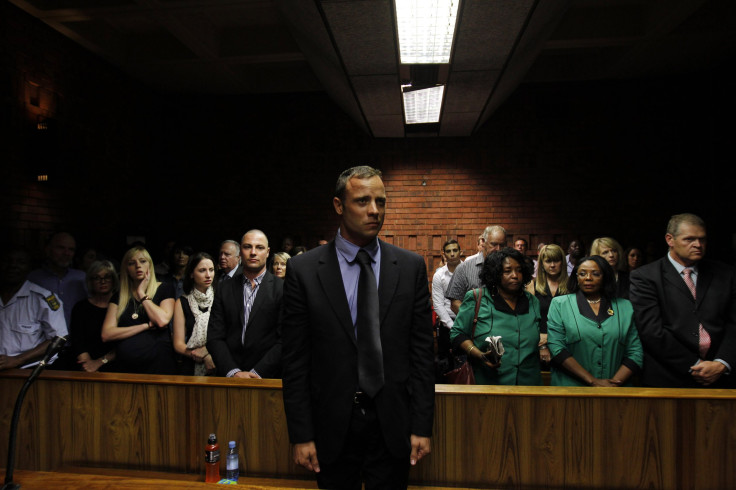Oscar Pistorius: South African athlete to be released from prison Friday

Paralympic runner Oscar Pistorius is set to be released from prison in South Africa after serving just 10 months of a five-year sentence for the shooting death of his girlfriend. Pistorius, who was convicted of killing her girlfriend Reeva Steenkamp on Valentine’s Day two years ago, will be on correctional supervision on Friday after a parole board decision recommended his early release.
Pistorius was sentenced to five years in prison in October 2014 after he was found guilty of culpable homicide. Pistorius admitted he killed Steenkamp unintentionally, but unlawfully after he mistook her for an intruder.
Pistorius is expected to serve the rest of his sentence at the home of his uncle outside Pretoria, reports USA Today. “Blade Runner” is expected to wear an electronic tracking tag upon his release and will likely be allowed to leave the house to work, carry out community service, or to attend important family events, according to Reuters.
Steenkamps’ parents submitted a letter urging the parole board not to release Pistorius early. June and Barry Steenkamp also wrote in the same letter that they had forgiven Pistorius, but said that a person must be held accountable for his actions if found guilty.
"Incarceration of 10 months for taking a life is simply not enough. We fear that this will not send out the proper message and serve as a deterrent it should,” the letter read in part.
Stephan Terblanche, an expert in sentencing and a professor at the University of South Africa, said that the parole board often consider correctional supervision because of an overcrowded and underfunded South Africa prison, reports CNN. The 28-year-old Pistorius was sentenced under a specific section of the Criminal Procedure Act, which entitles the parole board to place the prisoner on corrective supervision at the one-sixth mark of a sentence. South Africa also has a norm of releasing prisoners early as long as an inmate behaves well in prison and is not considered a danger to society.
However, Pistorius’ time in Waterkloof could be short-lived if state prosecutors succeed in overturning the decision. The details of their case will be submitted to the Supreme Court of Appeal in Bloemfontein on Monday.
Meanwhile, Jacques Sibomana, spokesman of National Institute for Crime Prevention and Reintegration of Offenders, said Pistorius’ punishment could be very psychologically traumatic. Sibomana also said that being imprisoned can have a very serious impact in the South African runner’s life.
According to experts, Pistorius is unlikely to ever compete at the highest level again with his lack of intensive training since the incident happened. Pistorius became the first amputee to compete against able-bodied athletes at the Olympics. Pistorius will likely be given a custodial sentence of at least 15 years if convicted of murder. The appeal hearing is due to start in November.
Contact the writer at feedback@ibtimes.com.au, or let us know what you think below.





















